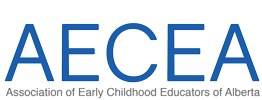Trauma is part of the human experience, and working from a trauma-informed lens acknowledges the prevalence of trauma within the population. As such, educators, first responders, social workers and front-line support staff can anticipate that they will often serve individuals who have experienced or been affected by trauma. This two-day foundational training acknowledges the prevalence and significant impact of trauma in an individual’s life and aims to inform service providers on how to apply a trauma-informed lens to their current practice. Learning to deliver services in this way will allow service providers to appreciate the context in which their clients live without contributing to these traumatic experiences. Trauma-informed care aims to provide services in ways that recognize the client’s need for emotional and physical safety, as well as provide the opportunity for client choice, control and collaboration in one’s own support and services provided.
On day two, we explore how working in human service creates the potential to experience burnout and empathic strain related to the traumatic stories and events experienced by others. It is important to care for the caregivers that work with individuals living with trauma. This session focuses on the positive potential of working through vicarious trauma response toward vicarious resilience and post-traumatic growth. Leading to the understanding that the strength is in the struggle.
Objectives
- Define trauma and understand the different types of traumas.
- Identify the signs and symptoms of trauma.
- Understand the impacts and effects of trauma.
- Explore the principles of trauma-informed approaches, including Awareness, Safety, Trustworthiness, Choice and Control, Collaboration and Connection, and Strength-Based Approach.
- Explain the elements of vicarious trauma and how they have the potential to create an imbalance in our ability to sustain our work and personal energy.
- Discover the transformation from vicarious trauma response to post-traumatic growth.
- Discuss tools and wisdom around emotional intelligence and resilience as ways of supporting strength-based relationships and individual and collective growth within the professional setting.
- Explore the Indigenous theory of two-eyed seeing as a mindset and tool that can support healing and understanding related to vicarious trauma.
This training is being generously sponsored by Living Hope - City of Edmonton for all Edmonton and area residents. This $260/per person training is now available at no cost to Edmonton and area participants by using discount code provided by Living Hope.
AECEA Professional and Student members get 15% off training through the Imagine Institute for Learning (IIFL), log in to your account for the discount code!
Location
Online
Date & Time
October 8, 2024, 9:00 a.m.-4:00 p.m. - October 9, 2024, 9:00 a.m.-1:00 p.m.
For more information and to register, go here.
